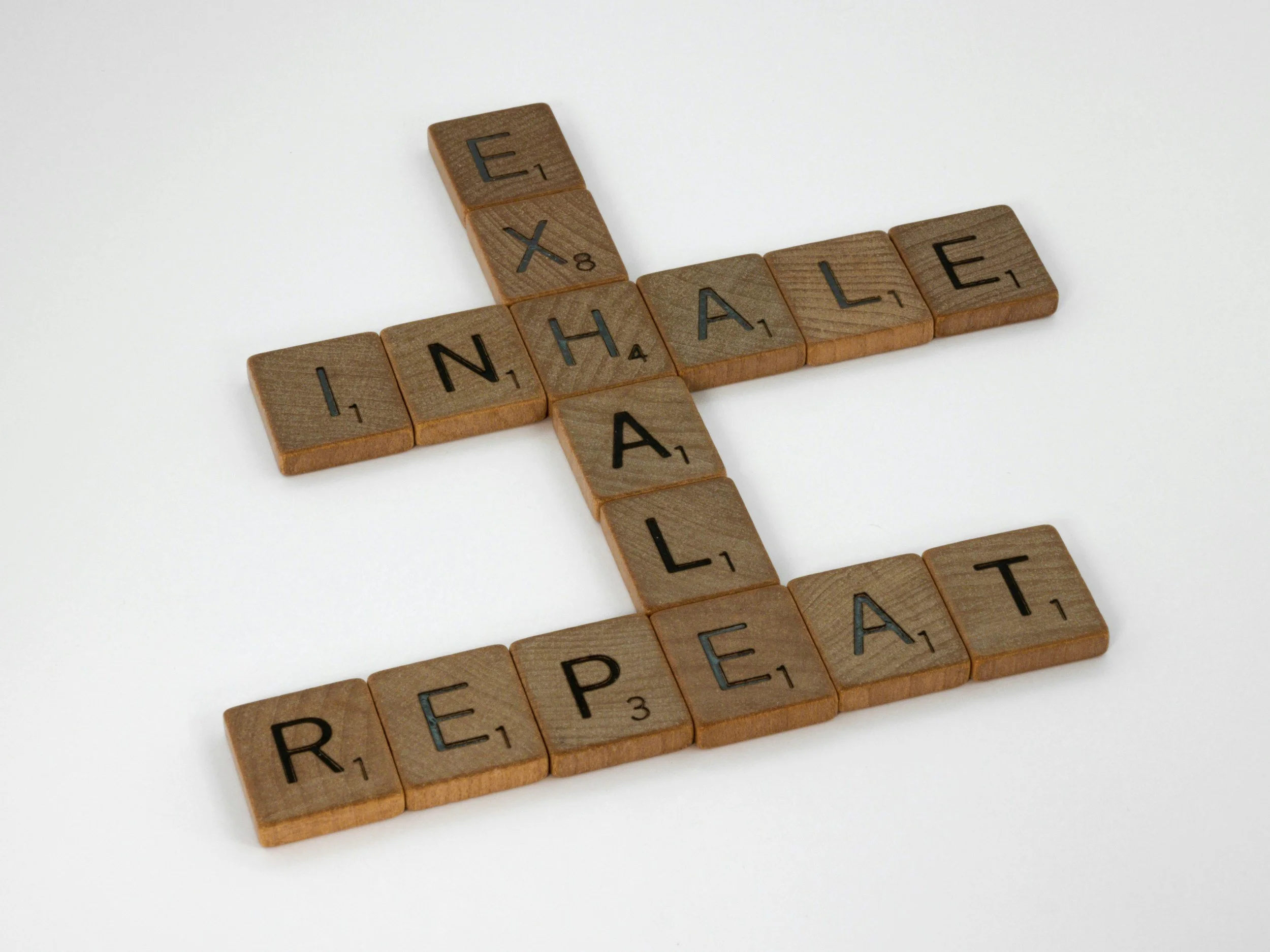
Educational Blogs from Our Mental Health Therapists
Learn about common challenges, including depression, anxiety, relationships,
trauma, and more, written by Maryland therapists!
Topic
- Anxiety
- Art in Therapy
- Biases
- Boundary Setting
- Brainspotting
- Burnout
- Business Owners
- COVID-19
- Careers
- Children & Teens
- Cognitive Behavioral Therapy (CBT)
- College Students
- Communication Skills
- DIY Crafts
- Depression
- Dialectical Behavior Therapy (DBT)
- Emotional Regulation
- Faith-Based
- First Responders
- Grief and Loss
- Highly-Sensitive Person
- International Clients
- Internships
- Ketamine-Assisted Psychotherapy
- LGBTQIA
- Men's Issues
- Mindfulness
- Motivation
- Neurodivergence
- Online Counseling
- Oppression
- Parenting
- Recovery
- Relationships
- Resources
- Sex Therapy
- Trauma and PTSD
- Women's Issues
- Workshop
Am I Having a Panic Attack? Signs, Symptoms, and When to Seek Therapy in Baltimore
Have you ever been walking through Hampden and all of a sudden felt like the ground below you was dropping? Sitting on a boat in the Inner Harbor and lost your breath, seemingly out of nowhere? Randomly started to feel like you’re spinning while enjoying a Ravens game? If you can relate to these experiences, there’s a chance you might have had a panic attack.
You Don’t Have to Eliminate Anxiety: Acceptance and Coping Strategies for Marylanders
Anxiety shows up in many forms and from many causes. Some anxiety shows up seemingly out of the blue and can interrupt even the most pleasant of days. Anxiety like this can appear as anxiety attacks (also known as panic attacks). Some anxiety can be subtle and slow to develop but may have long term effects on our daily functioning and available energy.
Finding the Right Therapist in Maryland: Mental Health Lessons from “Good Will Hunting”
Therapy is not an easy process. As much as we want to quickly find help or check the therapy box from our list, mental health is not something that is simply cured overnight. The 1997 film Good Will Hunting looks at this struggle to rush therapy and the importance of trusting the process.
Practicing Acceptance During the Holidays: Therapeutic Support for Maryland Adults
The holidays can be full of contradictions: Time off leaves us exhausted, fun and social gatherings feel lonely or isolating, and small talk turns into big debates with politics, religion, or world affairs. If we acknowledge that contradictions do and will abound whether we want them to or not - like heaping portions or inflatable lawn decorations - we can start to practice acceptance to shrink the discomfort of contradictory environments.
Being Present During the Holidays: Mindfulness Tips from a Baltimore Counseling Practice
Have you ever walked away from the holidays feeling empty? Have you forgotten about your holiday memories immediately after returning to work? Or have you looked around the table and been frustrated at how separated everyone seemed? If you answered yes to any of the questions above, you might be struggling to be present during the holidays.
Your Guide to Holiday Stress Relief: Practical Coping Strategies for a Calmer Season
The holiday season is such a joyous time of the year, but it can also bring a lot of stress, and you aren’t alone in this. The American Psychological Association reported that about 9 out of 10 Americans feel stressed during the holidays because of finances, missing loved ones, and family conflict. When we are stressed out, it is important that we have healthy coping strategies ready in our back pocket. Here are seven way to make this season less stressful and more joyous.
Maryland Therapist-Approved Stress Coping Strategies You Can Try
Stress and anxiety are universal experiences, but many people still struggle to understand and manage them in healthy ways. At LifeSpring Counseling Services, our therapists help clients navigate these challenges every day by offering practical tools for coping and deeper insight into their emotions. I asked our clinicians what coping strategies they recommend to someone struggling with stress, and what some common misconceptions they wish people understood better.
If Our Maryland Therapists Could Give Their Younger Selves Advice…
As therapists, it is easy to focus on helping others navigate and manage stress, but what would we tell our younger selves if we had the chance? Many of us do not always have the correct tools, awareness, or language we have now to manage our mental health. We asked our team of Maryland-based clinicians to reflect on the lessons they have learned over the years and the advice they would give their younger selves about managing stress, and how they recognize when it is time to reach out for support.
How “The Big Sick” Shows Us the Different Ways We Cope with Anxiety
Everyone struggles with the rollercoaster of life. Whether it be finding a job, coping with medical problems, or trying to understand a complex relationship, life can come with so many ups and downs that it feels almost impossible to cope with them. The 2017 movie The Big Sick tackles these different themes by looking at the way anxiety trickles through each one.
Doing More than Surviving “Happy” Holidays in Maryland
The holidays can be a time of renewed connection with family and friends, traditions celebrated, good food shared, and a new year begun. However, the holidays can also leave us more than a little drained and sometimes frazzled. When the string lights turn on, those of us that are close to loss of a loved one, divorce, or career upset might feel daunted or even overwhelmed. “Have a happy holiday!” starts to feel like a demand rather than well-wishing.
Coping with Holiday Loneliness and Grief: Reflection Questions Inspired by The Holdovers — Baltimore Counseling Insights
The holidays can be an exciting and festive time for many to reconnect with their loved ones and enjoy a special time of year. However, for some, the holidays are a reminder of all of the loss they have experienced. Whether that be the death of a loved one, feeling left behind, or simply alone, the holidays can make our loss feel amplified. The 2023 film The Holdovers tackles this idea of loss during the holiday season by looking at a boarding school in the 1970s during their winter break.
Finding Your Way: Navigating the First Holiday Season After Divorce
After a divorce, separation, or break-up, the holiday season can be emotionally challenging. Looking ahead might fill us with anxiety, but preparing in advance can mitigate feelings of loneliness or sadness and allow us to recenter ourselves amidst the un-grounded-ness associated with shifting shared traditions. What follows are some strategies to help navigate the holidays with grace and health.
How Lilo & Stitch Helps Us Understand Grief, Change, and Belonging — A Baltimore Counseling Intern’s Take
One of my favorite films of all-time is the 2002 animated classic Lilo & Stitch. I loved this movie as a kid and the more I rewatch it, the more I realize just how much the stories of both Lilo and Stitch are meaningful to my life and the lives of so many others. Throughout the course of the film, you get to follow their journey adjusting to their new lives, battling grief, and finding their place in the world. In this blog, I’ll be sharing some reflections from the movie and how the characters humanize mental health struggles, especially for kids.
Intergenerational Trauma and Depression: A Counseling Intern’s Reflection of the Movie “A Real Pain” with Discussion Questions
Life keeps moving despite the pain we feel everyday. We try to find ways to ignore it and numb it, but pain fills our minds and won’t let go. The 2024 film A Real Pain recognizes this struggle and hones in on the ways different people experience pain. Throughout the film, you get glimpses of their mental health through discussions about depression, pain, and intergenerational trauma. I was struck by how real and vulnerable this film got, and how humanizing the mental health of these characters and their journeys felt.
Coping with Grief on Holidays and Anniversaries: Baltimore Counseling Support
Navigating significant dates or milestones after a loss can bring up emotional and physical responses we might not have experienced before. After a loss, dates that used to bring joy and celebration now stir up feelings of sadness and dread. In the following blog, I’ll share some creative strategies that can help you remember your loved one and ease anxiety and grief the next time a day on the calendar starts to sneak up on you.
Talking About Mental Health Through KPop Demon Hunters: Discussion Questions for Baltimore Parents, Educators, and Kids
This summer, KPop Demon Hunters took the world by storm with its flashy colors, epic soundtrack, and heartfelt story. The thing that struck me the most when I watched this movie was how many mental health themes and messages came across in a way that was easy to grasp. Whether it be self-worth, depression, or shame, KPop Demon Hunters tackled a lot of themes that both adults and children can see themselves in.
Feeling Seen: A Maryland Counseling Intern’s Reflections on Inside Out 2’s Depiction of Anxiety
In 2024, Pixar Animation Studios released a sequel to their 2015 hit film, Inside Out, which tackled themes of childhood emotions. Inside Out 2 expands on this world within a young girl’s head. Notably, Anxiety was included as one of the newly featured emotions, sparking many discussions about mental health among moviegoers. Whether you are someone who struggles with anxiety on a daily basis, knows someone who constantly faces anxiety, or are curious about how to manage those bouts of anxiety we all face, Inside Out 2 provides a strong and beautiful characterization of anxiety.
Movies and Mental Health: Learning About Ourselves Through Watching Stories
Struggling with your mental health can feel isolating. It can be hard to find any form of connection in a world that values perfection and idealism. However, thousands of people deal with mental health struggles every day and tell their stories to connect with those in a similar place. One medium that has provided a number of mental health stories is film. This blog will introduce a series of upcoming blogs that will be looking at different films that portray mental health, covering various concerns and analyzing the quality of their depiction.
Protective Factors Against Depression: A Baltimore Counselor’s Guide
Depression is a mood disorder characterized by certain symptoms, like low mood, change in appetite, change in sleep, motivation issues, and certain time frame requirements, like symptoms that must last at least 2 weeks. Many individuals can have depression from a life change, like a move, break up, or season changes. Some have depression for longer timeframes and oftentimes have genetic components. Not everyone is the same so it is important to look for protective factors to help someone feel better and most like themselves.
Getting Grounded When the News Cycle Has Your Head Spinning
News headlines can be stressful in general. Having said that, the non-stop alerts about lay offs, fiscal cuts, human rights violations, and the next group of people being targeted with harmful legislative changes that we’ve been seeing lately are sure to create feelings of hopelessness, helplessness, and overwhelm.




















